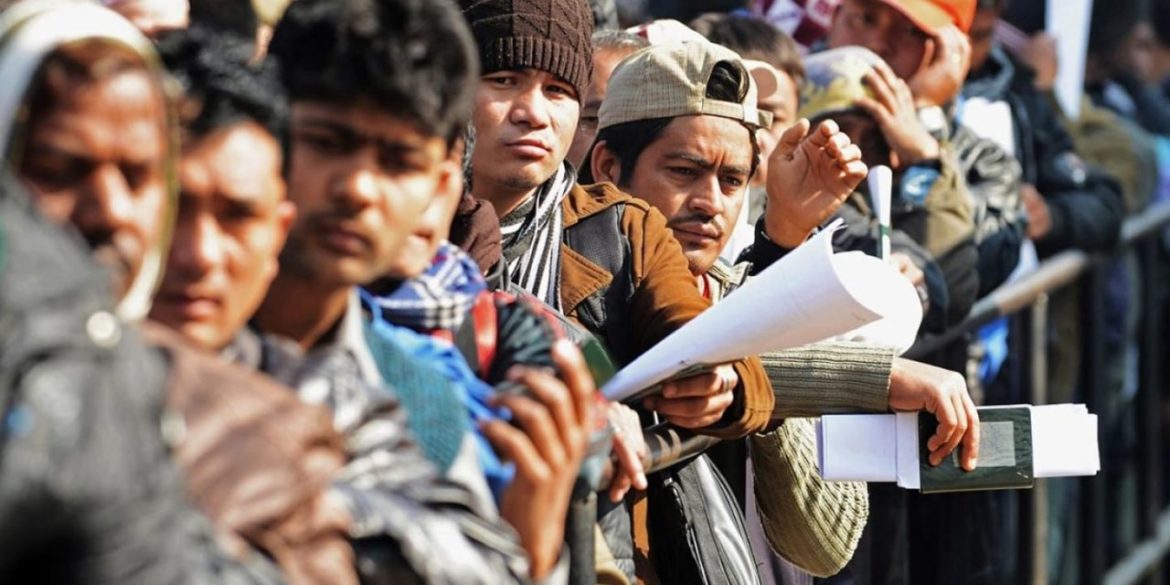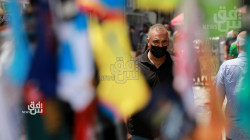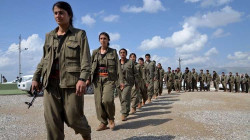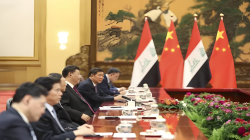Foreign labor.. a ticking bomb threatening Iraq's security and economy

Shafaq News / Despite its high unemployment rates, particularly among graduates, Iraq is currently witnessing a remarkable increase in the number of foreign workers.
More than a million foreign workers practice a variety of jobs in Iraq. Additionally, private business owners favor foreign workers because they are prepared to put in long hours, accept any job regardless of the salary, and choose to stay overnight in their workplace to avoid housing costs.
Private business owners also avoid hiring Iraqi citizens because they cannot force them to work longer hours, and want to stay away from the tribal and social issues that hiring Iraqi workers might cause.
However, because it negatively affects young Iraqis seeking employment, experts warn against foreign employment. In fact, most foreign workers entered the country illegally.
Furthermore, experts warn that the presence of foreign workers in Iraq poses serious security and financial risk, necessitating stringent procedures and a clear stance from intelligence agencies.
To combat this phenomenon, the Iraqi Ministry of Interior sends foreign workers home after their presence in Iraq is proven illegal, and prosecutes private companies that fail to comply with the decision to hire a certain number of locals.
Iraqi border guards are conducting intensive patrols to prevent illegal immigrants from entering the country. "Border guards deployed on the border strip of Maysan were able to thwart more than 50 infiltrators' attempts to cross the border with Iran in July," according to security sources in Maysan provincial border guards.
"The infiltrators wanted to reach Baghdad and try to find a job there. Many of them were carrying phone numbers of former employers: after leaving Iraq to visit their home country, they tried to return through smuggling networks," the sources told Shafaq News agency.
According to economist Nabil Jabbar, most foreign workers resort to smugglers to enter Iraq due to the high cost of investment licenses. Employment offices typically use foreign workers on investment licenses, allowing companies and investors to enter 50% of the required employment for their projects.
"Obtaining these licenses and approvals costs the investor, and the amount of administrative and bureaucratic pressures to pass and introduce employment made the whole process even more costly. Therefore, smuggling employment exempts investors from taking license through employment offices."
Years ago, the Iraqi government passed a law requiring all businesses to employ at least 50% Iraqi labor.
Article 30 of the Labour Code, enacted in 2015, prohibits departments and employers from employing any foreign worker in any capacity unless they have a work license from the Ministry of Labour, in exchange for a fee set by the Minister, while article 31 of the Act prohibits foreign workers from working before obtaining a license.
According to experts, illegal foreign labor depletes Iraq's financial resources by converting hard currency into dollars and then remitting it out, threatening the Central Bank's cash reserves.
"Foreign workers, particularly illegal ones, have a significant impact on the Iraqi economy because they exacerbate the unemployment crisis that Iraq is experiencing," said economist Ahmed Eid.
"The most dangerous thing about foreign employment is that cash transfers threaten and drain the country's hard currency cash reserves, so tight controls must be put in place on funds transferred abroad," Eid told Shafaq News agency.
For his part, legal expert Ali al-Tamimi pointed out that there is no law on foreign employment in Iraq, noting that the applicable law is labour law 37 of 2015 and the Residence of Foreigners Act 118 of 1978. These require the worker to obtain a work license.
"The presence of these workers without plans, similar to the huge number of imported cars, has an impact on the country's economy, unemployment rates, foreign currencies, and security," al-Tamimi stated.
He also stressed the need for a special law for this file, explaining that many of them do not have a residence, and the judiciary can do nothing but deport them to their countries.
Shafaq News agency's correspondents tried to contact several illegal foreign workers in the country. However, they refused to make any statement about it.
Unemployment in Iraq stands at 13.8%, while poverty is 25%, according to the latest government statistics.
Iraqis have been protesting for years against the country's political system, against the backdrop of rising indicators of financial and administrative corruption, deteriorating services, and high unemployment and poverty.





